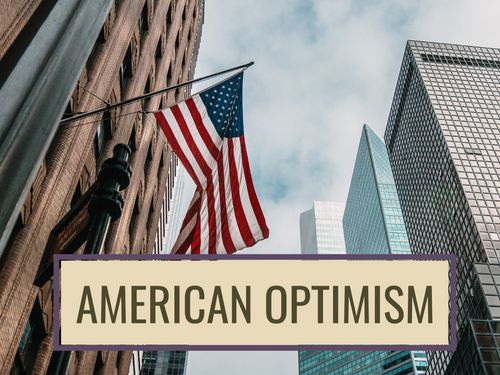History as a curse - and a blessing
Jul 18, 2021 · 2 mins read
0
Share

Robert Heilbroner is best known for The Worldly Philosophers - the second best selling economics book of all time. He wrote many essays too. In The Impasse Of American Optimism (1959) he discusses how a nation’s history can both be a blessing and a curse.
Save
Share
Heilbroner contrasts the American optimism of the 1950s with European pessimism. He argues that this difference in disposition is explained by different histories. Europeans have a tragic frame of mind simply because they’ve gone through tragedies.
Save
Share
Unlike Europe, America started with no history of entrenched aristocracies. Democracy took root more easily. There were no nobles or princes to resist or delay it. Less in-fighting between elites meant a smoother transition to modernity.
Save
Share
Capitalism also took root more easily. As a younger society, America could absorb the systematic shocks that capitalism administers to the body politic. European institutions were hundreds of years old, and capitalism caused severe disruptions to the status quo.
Save
Share
Technology spread more easily in the U.S. too. Heilbroner writes: “In Europe the thrust of the new technology came upon a world already built, parceled out, stratified and orderly.” The U.S. advanced more rapidly because it started off with a clean slate.
Save
Share
The United States was separated from other countries by the ocean. The nearby nations were exceptionally weak in their militaries. So the Americans felt greater agency to shape their world. The Europeans were constrained by frequent wars and change, and had resistant institutions
Save
Share
But good luck can’t last forever. Heilbroner, an American, notes: “After a voyage in which the favoring currents of history bore us (where) we sought to navigate, we have emerged into an open sea where powerful contrary winds come directly into conflict with our passage.”
Save
Share
Optimism became a handicap. Heilbroner lists challenges that the U.S. had minimal or no control over in the 1950s: nuclear proliferation, the spread of communism, the changing power dynamics in the global south, and more.
Save
Share
Until the 1950s, America never felt friction impossible to overcome. When obstacles did arise, America was psychologically unprepared. History had taught Europe to adjust expectations and make peace with less-than-perfect outcomes. America had been able to skip that class.
Save
Share
Bottom line: America’s optimism was a natural response to its experience. But when “irresistible, pitiless, unyielding” challenges came, the U.S. didn’t have the mental models to deal with them. Its unique strength – optimism – caused its unique blindspot.
Save
Share
0